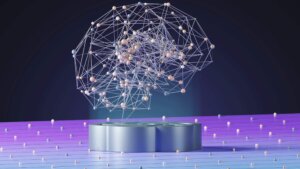In an era where mental health and cognitive performance have become central to our well-being, understanding how cognitive support has evolved is more important than ever. From ancient remedies to cutting-edge technology, the journey of enhancing mental wellness reflects humanity’s relentless pursuit of sharper focus, better memory, and emotional balance. This article explores that fascinating evolution and highlights the modern tools available today to support our cognitive health.
The Shift Towards Scientific Understanding
The 20th century marked a turning point as neuroscience and psychology emerged as formal scientific disciplines. Researchers began uncovering the biological underpinnings of cognition, such as neurotransmitter function, brain plasticity, and the impact of nutrition on neural pathways.
This period also saw the birth of cognitive training programs designed to rehabilitate brain function after injury or decline. Therapists applied targeted exercises to help individuals regain memory, attention, and problem-solving skills.
The development of dietary supplements specifically targeting cognitive enhancement gained momentum during this era. Vitamins like B-complex and minerals such as magnesium became common recommendations, though the results were often modest.
Advances in brain imaging and electroencephalography (EEG) technology provided new ways to observe and measure brain activity, propelling further research. Scientists also began to examine the role of lifestyle factors like sleep, exercise, and stress on cognitive performance.
If you want to explore some of the best natural nootropic formulations that support your brain health and cognitive performance, check out Mind Lab Pro.
Modern Tools for Cognitive Support and Mental Wellness
Today, cognitive support blends centuries of wisdom with the latest scientific breakthroughs and technological innovation. This synergy offers a variety of tools aimed at enhancing mental clarity, focus, and resilience.
ADVERTISEMENT
Nutritional Supplements and Nootropics
Supplements designed to support brain health have evolved far beyond basic vitamins. The modern nootropic market includes compounds known for their neuroprotective, neuroregenerative, and cognitive-enhancing effects. Ingredients like Bacopa Monnieri, Lion’s Mane mushroom, Rhodiola Rosea, and Phosphatidylserine have garnered scientific support for improving memory, reducing mental fatigue, and promoting neuroplasticity.
One standout product, Mind Lab Pro, is formulated with a blend of well-researched nootropic ingredients aimed at supporting all major aspects of cognitive function. Its clean, natural formulation is designed to boost focus, learning capacity, mental energy, and clarity without the crash associated with stimulants.
Scientific studies on these supplements suggest benefits such as enhanced synaptic communication, increased brain-derived neurotrophic factor (BDNF), and improved cerebral blood flow, all of which contribute to better cognitive performance.
Digital Cognitive Training and Brain-Training Apps
The rise of smartphones and digital platforms has made cognitive training more accessible than ever. Apps like Lumosity, Elevate, and CogniFit offer personalized games and exercises to strengthen memory, attention, and problem-solving skills.
While brain-training apps have become popular, scientific opinions on their efficacy vary. Some studies indicate that users improve at the trained tasks but may not experience generalized cognitive gains. Nevertheless, these apps encourage regular mental exercise, which remains a positive habit for brain health.
Their convenience and engagement factor mean they can complement other cognitive support strategies, especially for those seeking structured mental workouts.
ADVERTISEMENT
Mindfulness and Meditation Technologies
Mindfulness meditation has gained mainstream recognition for its benefits on mental health and cognition. Regular meditation practices can reduce stress, improve emotional regulation, and enhance attention.
Modern tools like the Headspace and Calm apps have made mindfulness accessible to millions. Additionally, neurofeedback devices such as the Muse headband provide real-time brain activity monitoring, helping users deepen their meditation practice.
Biofeedback and neurofeedback technologies harness physiological signals to train users toward optimal mental states. These approaches are increasingly integrated into cognitive wellness programs, emphasizing the mind’s ability to self-regulate and optimize performance.
Wearable Technology and Monitoring Devices
Wearable technology now plays an important role in personalized cognitive support. Devices that track sleep quality, heart rate variability, and physical activity provide insights into factors that affect brain health.
More advanced neurotechnology, such as EEG headsets, enables users to monitor brainwave patterns and even engage in neurostimulation therapies aimed at enhancing cognitive function. While still emerging, these tools represent a frontier in individualized mental wellness.
Wearables encourage users to adopt lifestyle changes informed by data, bridging the gap between technology and holistic cognitive care.
The Role of Lifestyle in Modern Cognitive Support
Modern cognitive wellness is most effective when it combines supplements, technology, and lifestyle choices. Quality sleep, regular physical exercise, social engagement, and stress management remain critical pillars.
Modern tools often act as catalysts, helping individuals form and maintain healthier habits. For example, mindfulness apps promote daily meditation, wearables encourage better sleep hygiene, and cognitive supplements provide the nutritional foundation.
This integrated approach reflects a growing understanding that cognitive health is multifaceted and influenced by both internal biology and external behaviors.
Conclusion
From ancient herbal remedies to sophisticated nootropics like Mind Lab Pro and brain-training apps, cognitive support has come a long way. Today’s tools combine tradition and science, technology and lifestyle, offering comprehensive strategies to nurture mental wellness.
By embracing a balanced, informed approach and leveraging modern innovations, individuals can optimize their cognitive function and enhance their quality of life. As research and technology continue to evolve, the future of cognitive support holds tremendous promise for all seeking sharper minds and healthier brains.









